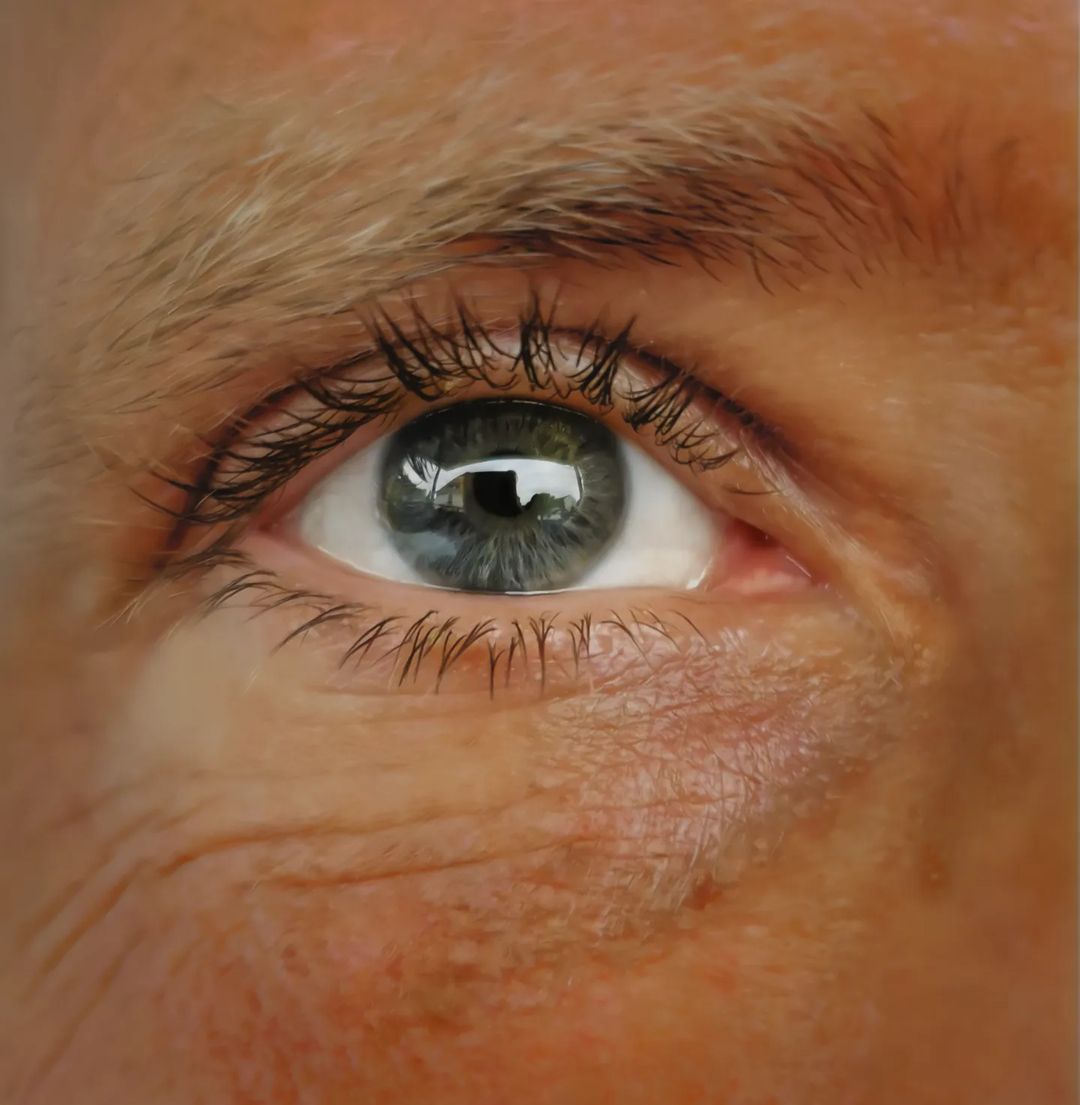Description:
Neurodiversity is also a vital part of natural biodiversity. Just as the diversity of species in an ecosystem strengthens and enriches it, so too does the diversity of minds within our society.



Neurodiversity is also a vital part of natural biodiversity. Just as the diversity of species in an ecosystem strengthens and enriches it, so too does the diversity of minds within our society.
By acknowledging and accepting my own pain, I was able to recognize myself in my behavior. I wrote, I took pictures. I also argued with friends, made up, cried, and laughed. I openly and confidently lived my self-concept despite its flaws. I succeeded in taking a critical yet understanding look at my own processes and acknowledged the vulnerabilities that fuel my emotions and influence my behavior and that of others. In my own suffering, I discovered understanding and thus forgiveness for both others and myself, which frees me from pain and strengthens my self-determination.
I recognize that I have a strong self-centeredness regarding the motives of others when they cause me noticeable harm, without fully considering their actual reasons and difficulties. I acknowledge that I have made mistakes, hurt people, and deceived myself about it. I acknowledge that I have paid more attention to the hurt than to my anger. I bear the responsibility for how I will deal with these insights.
However, I already feel much better. Even my brief negative emotional spikes that I almost regularly experience while winding down to sleep, which I have successfully pushed away in seconds for many years, have not appeared at all in recent days. This also applies to other emotional spikes that I usually feel in certain situations. The feeling comes, I name it, and by doing so, it becomes “dry.” The next time it comes, it doesn't happen at all because my brain does not receive a reward for engaging with it but rather a reward for consciously recognizing and categorizing it.
I have done this before, but due to the inner tensions and my ADHD, controlling my impulses has been more difficult for me, which also affected my conscious engagement with myself. I am not trying to excuse wrongdoing but to defuse its emotional component in order to create space for constructive thinking.
🤗 For a more nuanced discussion, please feel free to use the comments section, private messages or the anonymous contact form on my website.
This post is part of the artistic performance The Happening on Instagram.
Further information about this art project Related post on InstagramCreator of this post is Frederic Hilpert
© File Usage Guidelines This post on megagroundsloth.de


🏰🦁 My girlfriend at the time and I visited a chapel in Sayn Castle last year. We looked around the room, and after about a minute, I made one of my typical and initially hard-to-understand comments: 'This lion is different from all the others!' All the walls were decorated with numerous lion figures that looked almost identical—except one was sticking out its tongue. This is intentional because perfection is reserved for God alone. But why did I notice this tiny detail so quickly? Am I Rain Man or Indiana Jones?
🤠 No! It’s because of my ADHD!
🧠 1. Dopamine and Reward Sensitivity
In ADHD, the underactive dopamine system reduces sensitivity to rewards, making the brain more focused on novel stimuli, which feel more rewarding.
🧠 2. Increased Sensitivity to Stimuli
People with ADHD are more sensitive to new sensory input, making them quick to notice small changes as their brain constantly seeks new information.
🧠 3. Attention Shifting
Frequent shifts in attention help people with ADHD spot changes faster, as their brain is always scanning for new stimuli.
🧠 4. Hyperfocus
During periods of intense concentration, people with ADHD can excel at noticing small details and differences.
🧠 5. Prefrontal Cortex and Detail Recognition
Though the prefrontal cortex functions less efficiently in ADHD, heightened sensitivity to new information aids in quickly detecting deviations.
✨️ I am constantly looking for new information, changes, stimuli, so to speak, and that is why I notice such things very quickly. It’s a perfect example of how ADHD can sometimes be a superpower in noticing details that would escape most people’s attention!
🤗 For a more nuanced discussion, please feel free to use the comments section, private messages or the anonymous contact form on my website.
This post is part of the artistic performance The Happening on Instagram.
Further information about this art project Related post on InstagramCreator of this post is Frederic Hilpert
© File Usage Guidelines This post on megagroundsloth.de#adhd #adhs #neurodiversity #castle #rheinland #chapel #kapelle #schloss #lion #löwen #leuven #christianchurch #neurodiversität #specialabilities #rainman #indianajones #tombraider #specialskills #attentiondeficitdisorder #brainhealth #anecdote #hyperfocus #dopamin #recognize #recognition #cognition #perception #ojosazules

🌍🔥 Pursuing altruistic and compassionate motives while exhibiting selfish behaviors often seem contradictory, without necessarily being so. Nevertheless, this inner conflict can lead to frustration when actions contradict ideals.
To resolve this, some people may become blind to their behaviors, developing a flexible self-perception. While this flexibility can be beneficial, it can also increase vulnerability regarding self-assessment. For people with ADHD, even slight selfish tendencies can be amplified in challenging contexts, leading to potentially harmful or beneficial outcomes.
The underlying nature does not only have disadvantages. If managed correctly, it enables high performance. But now it is precisely about possible negative influences that I would like to ignore but will now pay more attention to.
Behaviors that seem selfish often stem from neurobiological factors, particularly dopamine and norepinephrine disruptions, affecting impulse control, reward processing, emotional regulation, and social cognition.
A deficiency in dopamine can lead to a preference for immediate gratification, making people with ADHD appear self-centered as they prioritize short-term needs over long-term consequences.
Low norepinephrine levels can impair attention to social cues, hindering understanding of others' emotions and the effects of one’s actions, which may lead to behaviors perceived as inconsiderate.
Difficulties in emotional control can heighten reactions, overshadowing empathy and consideration for others’ feelings.
ADHD can amplify egocentric tendencies, where impulsivity and a focus on immediate needs inhibit understanding others' perspectives. Repeated misunderstandings can lead to frustration, prompting people to prioritize self-protection.
Behaviors associated with ADHD, often viewed as egoistic, are rooted in neurobiological challenges affecting self-regulation. These tendencies reflect unconscious responses to internal struggles rather than intentional selfishness.
🌻 But as with many things, it depends on how consciously you deal with it and whether you do something to manage it better.
🤗 For a more nuanced discussion, please feel free to use the comments section, private messages or the anonymous contact form on my website.
This post is part of the artistic performance The Happening on Instagram.
Further information about this art project Related post on InstagramCreator of this post is Frederic Hilpert
© File Usage Guidelines This post on megagroundsloth.de
It has helped me to share my experiences and thoughts on various aspects of life that not only burden me but also strengthen me. A central difficulty is my tendency towards egocentric thinking.
This developed out of a system of oppression. In order to safeguard my interests within my family while constantly being manipulated and used, I developed coping mechanisms as a child.
I never had to do much to receive attention because my relatives wanted to maintain their influence over me. As a result, I never really felt the need to develop strong narcissistic behavior patterns within relationships.
Instead, I developed more egoistic behavior patterns because every stage of my life was marked by structural instability, and other people tried to influence my perspective, often for their own benefit.
I am not trapped in this egocentrism, but I am working on identifying the harmful aspects and their triggers. Like everyone, I have certain dynamics in my personality, consisting of adaptive (useful) and maladaptive (harmful) behavior patterns. These are closely linked to emotions and emotion regulation. I am very empathetic, but this is sometimes influenced more or less by my egoistic tendencies. My ADHD sometimes challenges my emotional regulation.
Since I have reported "publicly" on my experiences, it feels like I have regained a piece of self-determination, because now it has been said, and there’s nothing more I can do. I could still reach out to National Geographic, but I believe this is enough.
It has liberated me and allowed space for independent thinking that is not constantly under a defensive posture. Being able to take a free and self-determined (less self-centered) look at my own responsibilities has led me to the insight of what I can work on to improve my situation in the long term.
I have realized that my ability to consider other people's points of view can be improved and that I have a better chance of long-term emotional stability if I learn to forgive even the deepest pain, to let it go and stop giving it power.
🤗 For a more nuanced discussion, please feel free to use the comments section, private messages or the anonymous contact form on my website.
This post is part of the artistic performance The Happening on Instagram.
Further information about this art project Related post on InstagramCreator of this post is Frederic Hilpert
© File Usage Guidelines This post on megagroundsloth.de
There is a difference between addressing behaviors and attributing characteristics to someone. Behaviors can be harmful, depending on the specific dynamics of the situation. This does not mean that the individuals are bad or harmful. Of course, classifying behaviors is also a form of attributing characteristics, but it is only indirect, context-bound and not generalizing. Above all, it is not aimed at the personality but rather at behavior/thinking.
I approach new relationships with openness and honesty. On a professional level, I often have to weigh my options because there are complex dynamics at play. Nevertheless, I strive for the best possible understanding in those situations as well.
It is evident that when I try to convey what defines me and what I know about myself, I am also the one with the strongest basis for that. I greatly appreciate other perspectives, as they can expand my viewpoint. However, I also approach them with caution, as they can be distorted or inaccurate and harmful.
The wounded self-image of individuals who attribute higher competencies to themselves in recognizing my traits and abilities, which is indirectly questioned by my perspective, should not serve as a basis for power games or aggression.
I understand that it is not easy to grasp when I try to explain the dynamics, and that it can be frustrating. And that this might encourage harmful behavior and I myself am not always free from it either. However, I do not tolerate aggressive behavior. After every moment of frustration, everyone has the opportunity to reflect.
My aim is to maintain a healthy level of self-determination and protect my dignity, especially in situations where others try to control or undermine my abilities or intentions.
It is understandable that I do not leave negative insinuations or attempts to manipulate me unaddressed. This is especially relevant when my ADHD is used as a basis for unfair judgments or false assumptions about me. My resistance, therefore, is not only a defense of my abilities and self-image but also a rejection of manipulative or derogatory behaviors that would reduce me to a false or negative image.
🤗 For a more nuanced discussion, please feel free to use the comments section, private messages or the anonymous contact form on my website.
This post is part of the artistic performance The Happening on Instagram.
Further information about this art project Related post on InstagramCreator of this post is Frederic Hilpert
© File Usage Guidelines This post on megagroundsloth.de
No one can stay positive all the time. It's important to process negative experiences and allow emotions. For people with ADHD, this is challenging, as they tend to feel emotions more intensely and experience quicker shifts. However, maintaining a positive attitude can help manage challenges and reduce stress responses. In ADHD, dopamine and norepinephrine regulation is disrupted—not only is there a lack of dopamine, but its usage and processing are also inefficient. This dysregulation affects symptom intensity, which can be worsened by stress, sleep deprivation, or overstimulation.
It's no good idea to pressure someone with ADHD, as it often worsens their symptoms. Small positive gestures and respectful communication are typically more stabilizing. When someone explains what affects their performance and what improves it, it is not meant to be amusing, but essential.
This also applies to people taking ADHD medication. These medications alleviate symptoms but don’t fully address the underlying neurobiological causes. The core challenges of ADHD remain.
Like many with ADHD, I responded well to medication accompanied by psychotherapy, but finding the right dosage and timing was a lengthy process, often complicated by side effects such as insomnia which later formed a circular dynamic with depression.
Insomnia → performance problems → stress → depression
I couldn't bring myself to give up so quickly and accepted the difficulties with the medication, since they were also linked to my behavior. My specialists have not issued me any sick notes to oblige me to take personal responsibility.
After some years, I stopped taking medication. During this time, I didn’t have a supportive environment. I faced my difficulties openly and self-reflective, but the strong criticism of side effects and resulting consequences hindered my therapy and professional life. In addition, the lack of sleep impaired the effectiveness of the medication. Many people with ADHD share similar experiences, leading them, like me, to focus more on the holistic approach that includes behavior, emotion regulation, nutrition, exercise, and lifestyle changes.
🤗 For a more nuanced discussion, please feel free to use the comments section, private messages or the anonymous contact form on my website.
This post is part of the artistic performance The Happening on Instagram.
Further information about this art project Related post on InstagramCreator of this post is Frederic Hilpert
© File Usage Guidelines This post on megagroundsloth.de
As you can see, I’ve successfully completed 2nd grade! ✨😊
I’m sharing my primary school report from 1994 because ADHD, which has been with me since childhood, wasn’t diagnosed until I was 20. The quieter, mixed type often goes unnoticed. Even back then, my dreamy nature was clear, as I sometimes drifted away in class, lost in my thoughts. However, when a subject sparked my curiosity - like natural sciences - it was easier for me to engage. These topics appealed more directly to my ADHD-affected reward system, allowing me to focus and work more effectively. Distractions still impact me, especially with motor skills, but I’ve learned ways to adapt. ADHD often leads to deep, lifelong interests - and, yes, sometimes we forget our homework.😅
"Frederic has successfully completed the 2nd grade. He has a good grasp of basic multiplication. Addition and subtraction within 100 are more challenging for him. With word problems, he usually only recognizes the necessary calculation operation with external help.
In German, he reads simple words and texts but still struggles with unfamiliar and longer words. He sometimes does not understand the content of more difficult texts. When copying, he usually makes only a few mistakes, whereas he has more problems with practiced dictations. His writing is still somewhat uneven, and he sometimes has difficulty keeping within the lines. Frederic has attended a German support course. In general studies, he is particularly interested in natural science topics and works well here.
He could be more proactive in physical education, as his performance is good. In music, he sometimes participates in elements of the lessons (singing, rhythm, movement games to music, listening to music). He paints and draws very well but is still quite clumsy with manual tasks.
Frederic is very dreamy and usually works only minimally. He often does not understand work instructions and cannot yet work independently. He completes written tasks carefully and with concentration but needs a lot of time to do so. Sometimes he forgets to do his homework."
🤗 For a more nuanced discussion, please feel free to use the comments section, private messages or the anonymous contact form on my website.
This post is part of the artistic performance The Happening on Instagram.
Further information about this art project Related post on InstagramCreator of this post is Frederic Hilpert
© File Usage Guidelines This post on megagroundsloth.de
🧠🌦 Positive and negative thinking and ADHD.
ADHD is characterized by a dysregulation of dopamine and norepinephrine, which can lead to problems with attention, motivation, and impulse control. Positive thinking affects these neurotransmitters and can positively impact some symptoms of ADHD.
1. ADHD and Neurotransmitters:
Dopamine: People with ADHD often have a dysregulated dopamine system, which is important for reward, motivation, and attention. A lack of dopamine can lead to difficulties in maintaining attention and motivation.
Norepinephrine: Norepinephrine, which is responsible for regulating attention and arousal, can also be impaired in ADHD. Dysregulation in this system can affect the ability to focus on tasks and control impulsive behavior.
2. Negative Thoughts and Feelings:
Dopamine: Negative thoughts can disrupt the dopamine system and lead to anhedonia, which is a reduced interest in normally enjoyable activities.
Norepinephrine: Negative emotional states can increase norepinephrine production, which can result in higher stress and anxiety. Chronic stress can further disrupt norepinephrine regulation and negatively affect mood.
The human brain has a natural tendency to prioritize negative thoughts and potential threats. A positive environment makes it easier to perform.
3. The Impact of Positive Thinking on ADHD Symptoms:
Dopamine and Motivation: The dopamine system is often underactive in people with ADHD, leading to low motivation. Positive thinking can boost dopamine production, which improves motivation and well-being, helping to tackle daily tasks with more enthusiasm.
Norepinephrine and Attention: Positive thinking can help stabilize norepinephrine levels, improving the ability to concentrate and focus, and making it easier to handle tasks.
Stress and Impulsivity: Positive thinking can also reduce stress, which often plays a role in ADHD. By lowering stress, it can also improve impulse control.
Self-Esteem and Resilience: ADHD can affect self-esteem. Positive thinking fosters a stronger sense of self-worth and enhances resilience by focusing on progress rather than failures.
🤗 For a more nuanced discussion, please feel free to use the comments section, private messages or the anonymous contact form on my website.
This post is part of the artistic performance The Happening on Instagram.
Further information about this art project Related post on InstagramCreator of this post is Frederic Hilpert
© File Usage Guidelines This post on megagroundsloth.de
🌿 Sensory overload can affect anyone when they are overwhelmed by many types of stimuli, like sounds, visual details, or tactile sensations. For me, as someone with ADHD, this sensitivity is particularly strong. My ability to filter out distractions and focus on what’s important is often limited, which makes the effects of sensory overload even worse.
I often find myself in situations that seem completely normal to others but are overwhelming for me. The habits and expectations of those around me frequently clash with my own challenges and needs. Additionally, there are often biases, a lack of empathy, and a reluctance to understand my perspective and reality.
It would make a big difference if there was more willingness to recognize and understand my viewpoint.
Some might claim that it doesn’t matter what others think, but they overlook the fact that these attitudes directly impact my quality of life and the opportunities available to me. I do my best to make the most of what life offers to meet my needs. I accept that certain areas may be closed off to me because I have to, not because I believe it is right or good. Some things are like the weather because you can't really control them and you have to learn to dance in the rain.
🤗 For a more nuanced discussion, please feel free to use the comments section, private messages or the anonymous contact form on my website.
This post is part of the artistic performance The Happening on Instagram.
Further information about this art project Related post on InstagramCreator of this post is Frederic Hilpert
© File Usage Guidelines This post on megagroundsloth.de#stigma #adhd #adhs #sensoryoverload #storm #thunder #acceptance #diversity #ableism #unknownperspectives #perspectives #viewpoint #pointofview #empathy #neurodivergent #attitudes #plants #ranking #lifeofadventure #autumn #herbst #limitations #akzeptanz #understanding #neurology #lebensweg #tolerance #barrierefreiheit #inklusion

I was excluded from my family because I did not meet their expectations, did not allow myself to be controlled and therefore appeared to be a threat.
The expulsion of an unwanted member by a family or group demonstrates strength and unity by elevating themselves above the expelled member.
False accusations are used to discredit the member and prevent them from gaining recognition or influence in another group. This tactic protects the original group from potential threats and strengthens its cohesion and power structure by avoiding internal conflicts and external hostile relations.
Evolution: Already in early tribal societies, expulsion was a pragmatic solution to safeguard the tribe. Instead of killing the member or keeping them nearby, which could provoke internal revenge acts and external threats, they just were banished. This allowed the expelled individual to seek a new existence in distant regions while minimizing the direct threat to the tribe and ensuring internal stability.
These behavioral patterns follow certain rules that have proven effective over the course of evolution to ensure the survival and stability of groups.
This is well described by anthropological, historical and social-psychological findings, and in its modern form still takes place today. But also the existence of alternative behaviors and ways of resolving conflicts.
Schopenhauer argued that human morality is often shaped by selfish motives and prejudices, and that human behavior in many cases is not fundamentally different from the behavior of animals.
There are groups that welcome my characteristics. They have a different culture and conduct internal disputes constructively. The fact that I was excluded says nothing about my qualities, but more about the inability of others to accept and love me as I am.
When opportunities for a new "tribal affiliation" arise, I address the reasons openly because I set the standard for what kind of treatment I will accept. Honesty and independence are more important to prevent experiencing the same negative situations in a new group that would again cost personal resources.
🤗 For a more nuanced discussion, please feel free to use the comments section, private messages or the anonymous contact form on my website.
This post is part of the artistic performance The Happening on Instagram.
Further information about this art project Related post on InstagramCreator of this post is Frederic Hilpert
© File Usage Guidelines This post on megagroundsloth.de